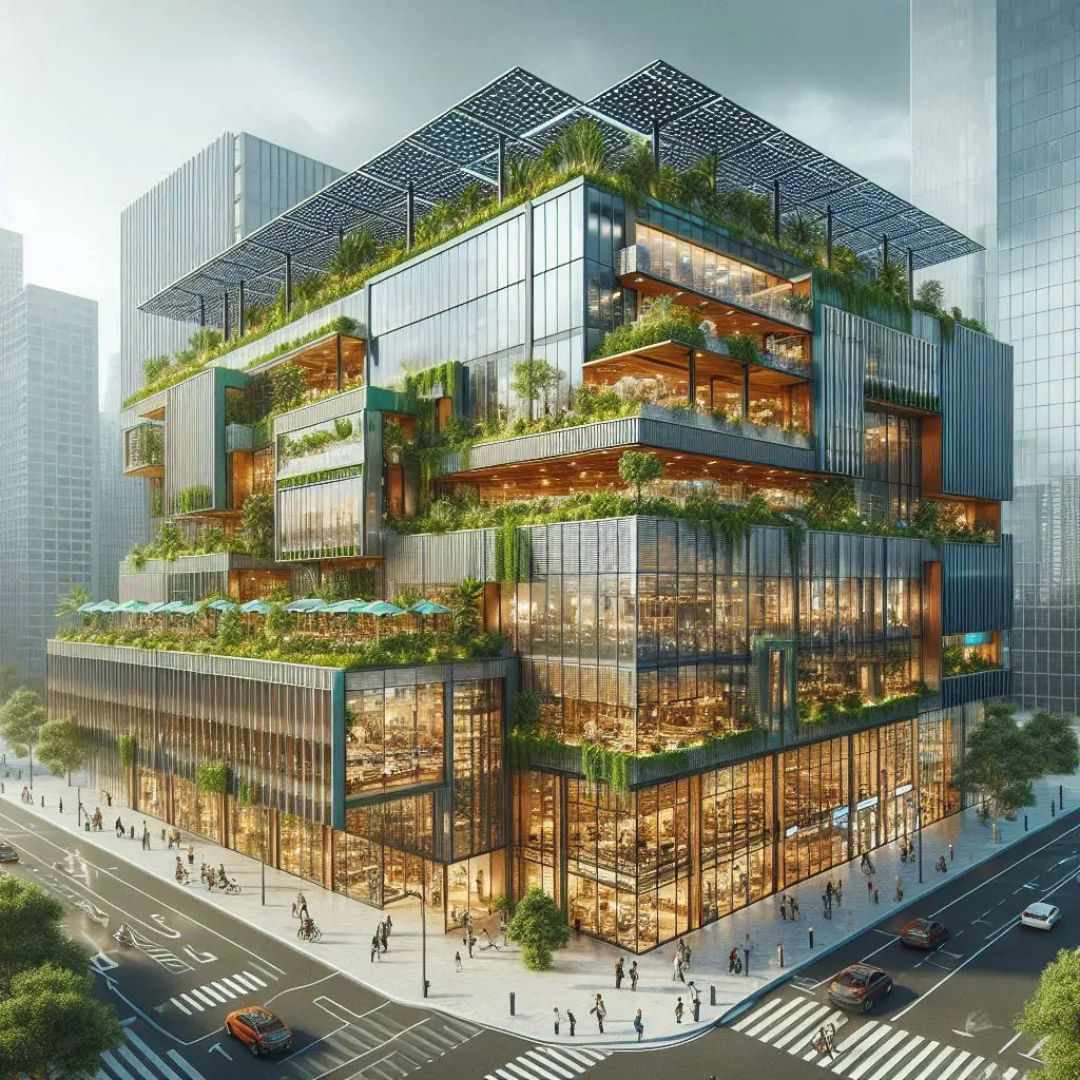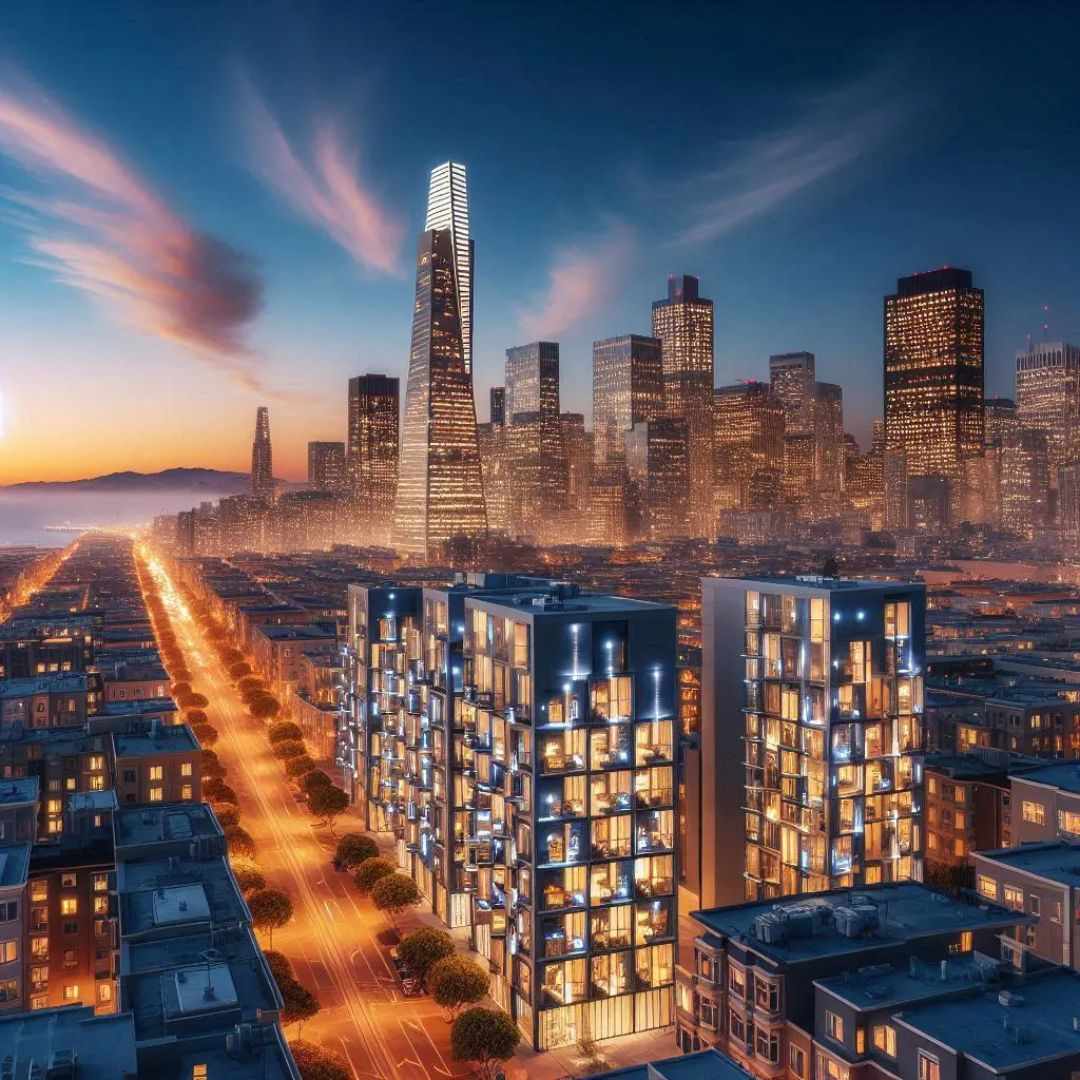
Many San Jose property owners don’t realize their buildings may already be out of compliance with new energy codes. With recent updates to San Jose building codes, properties that haven’t undergone recent energy evaluations are at risk—especially in sectors like retail, office, and mixed-use. Common triggers for code violations include outdated HVAC systems, inefficient lighting, or lack of energy benchmarking reports. These issues can quietly build up and lead to fines, tenant complaints, or even restrictions on permits and renovations. A San Jose Energy Audit identifies these problems early, giving property owners the insight they need to stay ahead of energy compliance issues and avoid unnecessary expenses.
A commercial energy audit does more than check off a regulatory requirement—it creates a roadmap for operational savings and long-term building health. By investing in an audit, property managers can uncover targeted energy saving solutions tailored to their building type and usage. And with tools like our Energy Audit Instant Pricing Tool, you can now receive accurate cost estimates in minutes, making it easier than ever to plan and budget for compliance. Whether you're managing a high-traffic retail space or an aging office building, now is the time to act—before small inefficiencies become costly setbacks.
Understanding San Jose’s Evolving Building Code Landscape
San Jose’s building codes are closely aligned with California’s climate action goals, requiring commercial buildings to reduce energy consumption and greenhouse gas emissions. Over time, the codes have become stricter, especially for lighting efficiency, HVAC performance, energy benchmarking, and building envelope standards. Many commercial property owners remain unaware of how quickly their buildings can fall out of compliance.
Key updates to San Jose’s energy code requirements include:
Mandatory Energy Benchmarking for buildings over 50,000 square feet, as outlined in the Energy and Water Building Performance Ordinance.
Lighting Retrofit Mandates, requiring the phase-out of older lighting systems in favor of high-efficiency LED fixtures.
Higher HVAC Efficiency Standards, with minimum ratings based on building type and operational intensity.
Envelope and Insulation Requirements that affect older office and mixed-use buildings with outdated thermal resistance.
Failing to keep up with these updates can lead to fines, delayed permits, and missed opportunities for energy savings. That’s why a professional San Jose energy audit is the essential first step in assessing and addressing compliance gaps.
What a Commercial Energy Audit in San Jose Includes
A commercial energy audit is a structured assessment of your building’s energy use, system performance, and compliance with local codes. It identifies how energy is consumed across all systems and pinpoints inefficiencies or code violations.
🔍 San Jose Energy Audit Checklist:
Lighting Systems: Review of installed lighting types and layouts to identify non-compliant fixtures, outdated bulbs, and areas requiring LED retrofits.
HVAC Systems: Evaluation of heating, cooling, and ventilation equipment for efficiency ratings, maintenance status, and operational alignment with code standards.
Envelope Performance: Inspection of walls, windows, doors, insulation, and sealing for energy loss, air leakage, and compliance with Title 24 envelope standards.
Benchmarking & Reporting: Verification that the building meets San Jose’s mandatory annual benchmarking requirements, including accurate ENERGY STAR scoring.
Operational Schedules: Comparison of occupancy schedules and equipment run times to spot unnecessary energy use and opportunities for system programming improvements.
These assessments provide both a current snapshot and a strategic roadmap to compliance and efficiency.
How Energy Audits Help Meet San Jose Building Codes
1. Identify Code Violations Early
Many energy-related code violations go unnoticed until they result in formal citations. Energy audits proactively surface issues such as:
Lack of functioning economizers or demand control ventilation
Outdated HVAC systems below SEER or EER thresholds
Insufficient lighting levels or non-LED installations
Missing submeters in multi-tenant buildings
Identifying these violations early allows owners to schedule corrective actions during regular maintenance or minor renovations—avoiding costly emergency upgrades or legal issues.
2. Generate Required Benchmarking Reports
San Jose mandates that large buildings submit benchmarking data annually. Energy audits generate the necessary metrics, ensuring property owners comply with the benchmarking compliance deadlines.
Typical audit outputs include:
ENERGY STAR Score
Energy Use Intensity (EUI) in kBtu/sqft/year
Carbon Emissions Estimates
Recommendations to improve low-scoring areas
With this documentation, owners stay compliant and avoid fines for non-submission or inaccurate reporting.
3. Streamline Permit Approvals and Renovations
If your property undergoes renovations, energy code compliance becomes a critical part of the permitting process. San Jose city planners may require:
Evidence that new systems or layouts meet Title 24, Part 6 requirements
Documentation of prior energy efficiency improvements
Benchmarking reports demonstrating steady performance over time
A current energy audit satisfies these requirements, expediting approval timelines and helping avoid redesigns or denied permits.
4. Provide a Clear Cost-Benefit Breakdown for Retrofits
Audits help quantify the financial impact of energy inefficiencies. They provide itemized projections of:
Capital investment required per upgrade
Annual savings in kWh or therms
Payback period in months or years
Applicable utility rebates or incentives
Example: Cost Comparison Before vs. After Audit Implementation
Audit Area
Annual Cost Before
Annual Cost After
Savings
HVAC Operation
$12,000
$7,500
$4,500
Lighting Energy
$6,500
$3,000
$3,500
Poor Scheduling
$4,000
$2,000
$2,000
Total Savings
$10,000
With clear figures like these, stakeholders are better equipped to approve necessary upgrades, and timelines for ROI become more predictable.
Avoiding Common Compliance Pitfalls
Many San Jose buildings fall into similar patterns of non-compliance, often due to aging infrastructure or lack of energy tracking. Without an audit, these issues remain hidden until they trigger fines or renovation delays.
Common Issues Uncovered in Energy Audits:
Missed Benchmarking Deadlines
Failure to report by San Jose’s annual deadline (usually May 1) can lead to fines of up to $5,000 per building per violation.Legacy HVAC Equipment
Older HVAC units often run well below the city’s required efficiency standards and contribute to excess emissions and operating costs.Non-Compliant Lighting
Fluorescent, halogen, or incandescent fixtures in commercial areas often violate current Title 24 mandates.Insufficient Insulation and Air Sealing
Especially in retail and mixed-use properties, thermal losses from unsealed envelopes lead to both comfort complaints and non-compliance.
By uncovering these issues early, energy audits not only help avoid citations and fines but also build a proactive roadmap for improving performance and comfort across the board.
Why You Should Act Now
San Jose’s building codes will only continue to tighten as California pursues net-zero carbon targets. What’s optional now may become mandatory next year. Energy audits future-proof your operations and give you time to implement changes on your own schedule and budget.
Benefits of Scheduling a San Jose Energy Audit Today:
Avoid costly last-minute retrofits to comply with new code requirements
Receive accurate documentation for permits and benchmarking
Access clear cost estimates with our Energy Audit Instant Pricing Tool
Boost tenant satisfaction by improving comfort and operational reliability
Qualify for rebates and incentives through your local utility provider
Stay Ahead of Compliance—And Save While You’re At It
If you own or manage commercial property in San Jose, staying compliant with evolving building codes isn’t optional—it’s essential. This article walked through how a professional San Jose Energy Audit uncovers hidden inefficiencies, flags potential violations before they turn into penalties, and prepares your building for smoother permitting and upgrades. From HVAC and lighting inspections to benchmarking reports and cost-saving retrofit plans, a commercial energy audit does more than meet code—it sets your property up for long-term efficiency and reduced operating costs.
Now is the time to act. San Jose’s codes will only get stricter, and waiting could mean higher expenses or lost opportunities. Our Energy Audit Instant Pricing Tool gives you fast, accurate estimates so you can budget smart and stay compliant without delay. Don’t wait until fines or permit problems force your hand—take the first step toward full compliance and smarter energy use today.
VertPro.com offers tools and services to help property owners and managers improve building energy efficiency and meet regulatory standards. Whether you're looking for instant pricing on energy audits, need support with benchmark compliance, or want to explore available building upgrade options, VertPro® provides user-friendly technology solutions to simplify the process. Their platform helps ensure adherence to over 60 Energy Benchmarking and Efficiency Laws across the country.
Energy Audit Instant Pricing Tool. Gain rapid, precise energy audit cost estimates. Streamline compliance and reduce expenses today.
















Write a comment ...